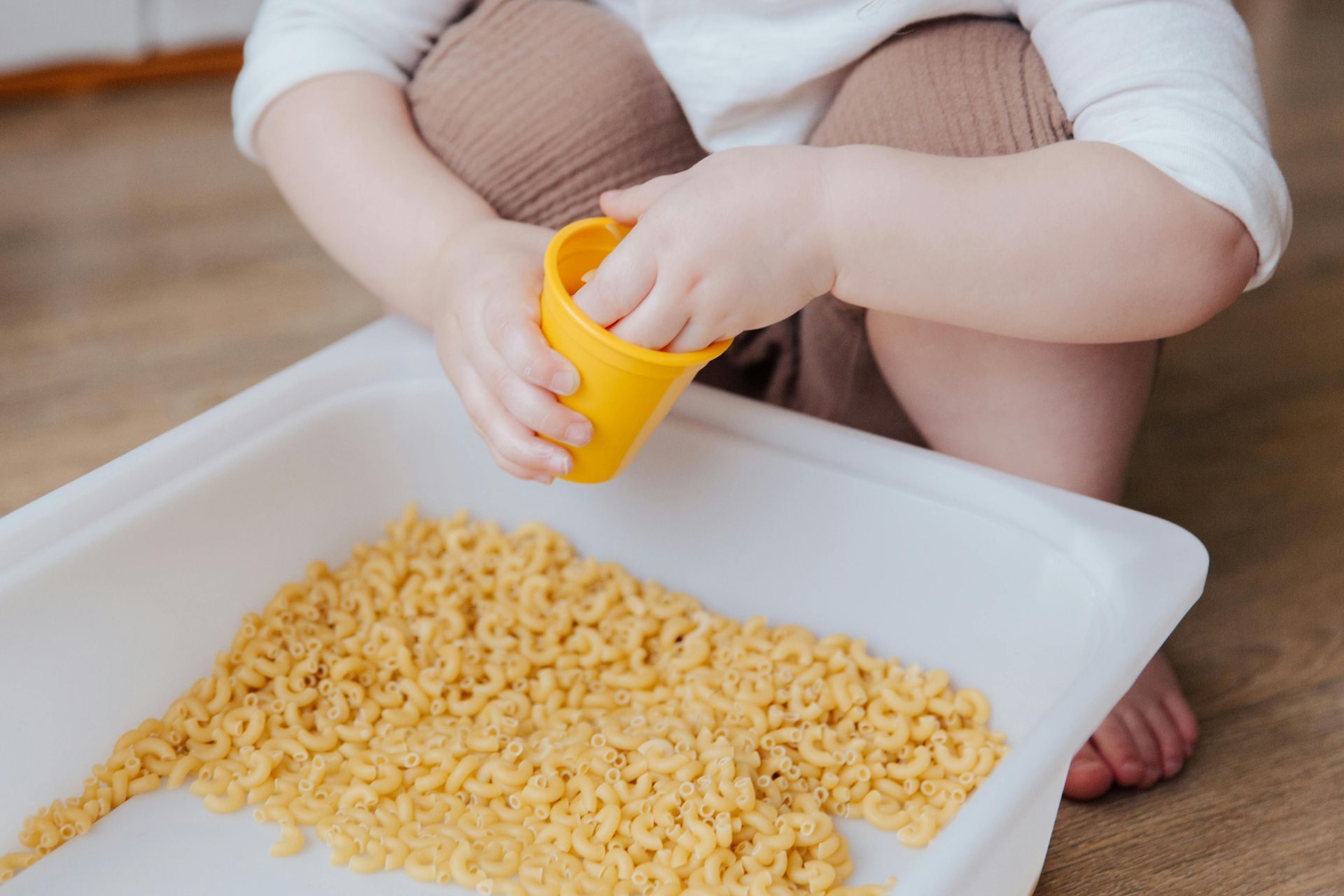Turning Mealtimes from Stressful to Successful
How a Step-by-Step Approach Can Help Anxious Kids with Feeding
Hey there, parents and caregivers! We all know that mealtime can sometimes feel like a battleground when you're dealing with a child who has anxiety and feeding difficulties. But what if I told you that there's a way to turn things around and make mealtime a positive experience? Enter the systematic approach in feeding therapy – a game-changer for kids struggling with anxiety. Let's dive into why this approach is a lifesaver for both your little one and your sanity.
First things first, let's talk about the link between anxiety and eating struggles. You see, anxiety and feeding problems often go hand in hand. Your child's worries can lead to them becoming picky eaters or even avoiding certain foods altogether. On the flip side, the stress of not eating well can amp up their anxiety, creating a never-ending cycle. This is where a systematic approach steps in.
Why It Works
Baby Steps, Big Wins: Imagine trying to climb a mountain in one giant leap – it'd be tough, right? The same goes for introducing new foods to an anxious child. With a systematic approach, we take it slow. We gradually bring in new foods, letting your child get comfortable with them one step at a time. No more overwhelming them with a full plate of new things!
Predictability FTW: Kids love routines, and the systematic approach gives them just that. By having a predictable mealtime routine, you're giving your child a sense of control. When they know what's coming, it helps ease their anxiety. It's like creating a safe space around food.
Facing Fears, But Gently: Ever heard of dipping your toes in the water before diving in? That's the idea here. Systematic desensitization is a fancy term for getting your child used to things that trigger their anxiety. With feeding therapy, we start with foods that are a bit challenging but not terrifying. Over time, this helps your child build confidence in facing their food fears.
Cheers to Positive Vibes: Imagine your child tasting a new food and actually enjoying it. That's a big win, right? In the systematic approach, we celebrate these victories. Positive reinforcement, like praise and rewards, boosts their self-esteem and makes mealtime a happier experience.
Emotions 101: Feeding therapy isn't just about food – it's also about teaching your child how to handle their emotions. As they learn to manage anxiety during meals, these skills spill over into everyday life. It's like a double win!
Team Power: Feeding therapy is a team effort. You, the therapist, and anyone else involved work together to create a supportive environment. Consistency across different settings makes your child feel secure and reduces anxiety triggers.
Mealtime doesn't have to be a constant source of stress for you and your child. A systematic approach in feeding therapy is all about taking baby steps, creating routines, and celebrating wins – big and small. By addressing anxiety head-on and pairing it with smart strategies, we're helping your child build a healthy relationship with food and a boatload of self-confidence. So, here's to happier mealtimes and happier kids!





(404) 585-8269
In Home Services Around Dunwoody , GA
In Office Services in Cumming, GA
info@millerfeedingsolutions.com
(404) 282-1017
Cumming Office Collaborative Care Partners:



Center for Psychological & Educational Assessment
Comprehensive clinical, educational, and psychological assessments.
NOT MEDICAL ADVICE DISCLAIMER: The content of this website, posts, and blogs does not constitute medical advice. If you have concerns about any health or medical condition, diagnosis, or treatment, you should consult with a licensed healthcare provider. If you are experiencing a medical emergency, you should call 911 immediately.







